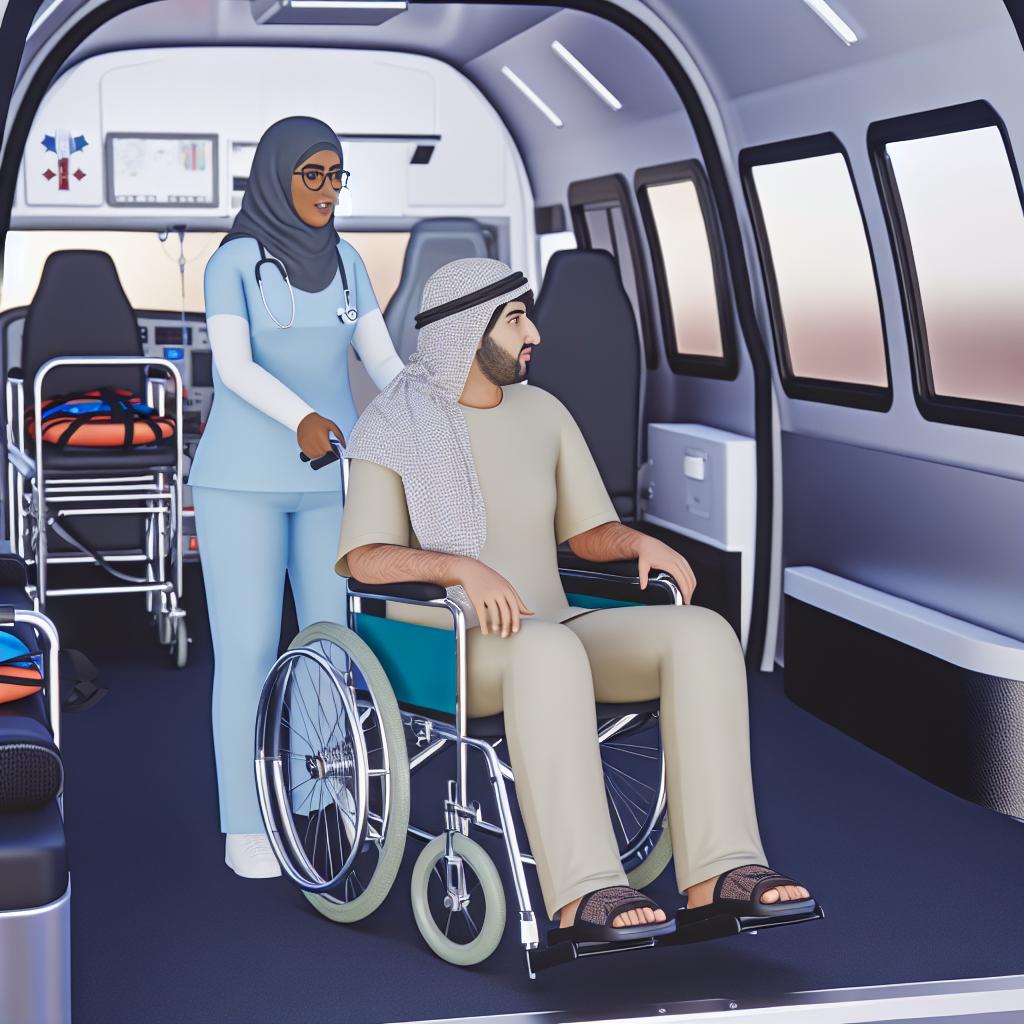Navigate the complexities of selecting the best non-emergency transport service for your...
Revolutionizing Recovery: How Rehabilitation Transportation Services Can Kickstart Your Healing Journey

Explore how rehabilitation transportation services are transforming the recovery journey by providing key benefits that ensure a smoother, more accessible path to healing.
Ensuring Consistent Access to Rehabilitation Services
Access to rehabilitation services is not just a convenience; it's a critical component of a successful recovery journey. For many, the lack of transportation can be a major barrier to receiving the care they need. Rehabilitation transportation services bridge this gap, providing safe and reliable means for individuals to attend therapy sessions, doctor's appointments, and other essential health-related engagements. This consistent access is paramount in maintaining the momentum of recovery, ensuring that healing and progress are not derailed by logistical challenges.
Moreover, these services are often equipped to handle the special needs of their passengers, including wheelchair accessibility and support for other mobility devices, making the journey to and from rehabilitation centers not just possible, but comfortable and dignified.
Offering Personalized Care and Emotional Support
Rehabilitation transportation services are more than just a mode of transit; they are a source of personalized care and emotional support. The professionals operating these services are trained to not only assist with the physical aspects of transportation but also to provide a listening ear and a comforting presence. They understand the emotional toll that recovery can take and strive to create a nurturing environment within their vehicles. This can be especially comforting for individuals who may feel vulnerable or anxious about their rehabilitation journey.
The emotional support offered by rehabilitation transportation services can make a significant difference in an individual's outlook on their recovery, offering reassurance that they are not alone and that their well-being is of utmost importance.
Promoting Adherence to Treatment Plans and Recovery Goals
The road to recovery is often paved with strict schedules and regimented treatment plans. Adherence to these plans is critical for effective rehabilitation. Rehabilitation transportation services play an instrumental role in promoting this adherence by ensuring individuals can reliably attend all necessary appointments. The convenience of pre-scheduled rides eliminates the worry of how to get to and from treatment, which can be particularly beneficial for those who are in a compromised state and may struggle with maintaining a consistent routine on their own.
By removing transportation as an obstacle, individuals are better equipped to focus on their recovery goals, leading to improved outcomes and a greater likelihood of a successful and timely healing process.
Reducing Stress and Anxiety with Compassionate Assistance
Transportation to rehabilitation services should not be a source of stress and anxiety, but for many facing recovery, it is. Rehabilitation transportation services alleviate this burden through compassionate assistance that begins the moment an individual is picked up. Drivers and assistants are not only skilled at navigating the roads but also at understanding the emotional states of their passengers. They strive to create a calming atmosphere, where respect and kindness lead the way, allowing individuals to transition to and from their rehabilitation appointments with ease and peace of mind.
This reduction of stress and anxiety is more than a comfort; it is a therapeutic component of the recovery process itself, helping individuals to arrive at their destinations ready to focus on healing without the added worry of transportation logistics.
Empowering Independence and Enhancing Autonomy in Recovery
A sense of independence and autonomy is vital for many individuals on their journey to recovery. Rehabilitation transportation services empower this sense by providing the means to travel to appointments and engage with treatment independently. This can be especially encouraging for those who may have previously relied heavily on family or friends for transportation, as it gives them the ability to manage their own schedules and fosters a sense of self-reliance.
The psychological benefits of this independence are significant. It can boost confidence and self-esteem, which are often needed when facing the challenges of rehabilitation. Ultimately, the autonomy provided by these services can be a key contributor to an individual's overall sense of control and determination in their recovery journey.

